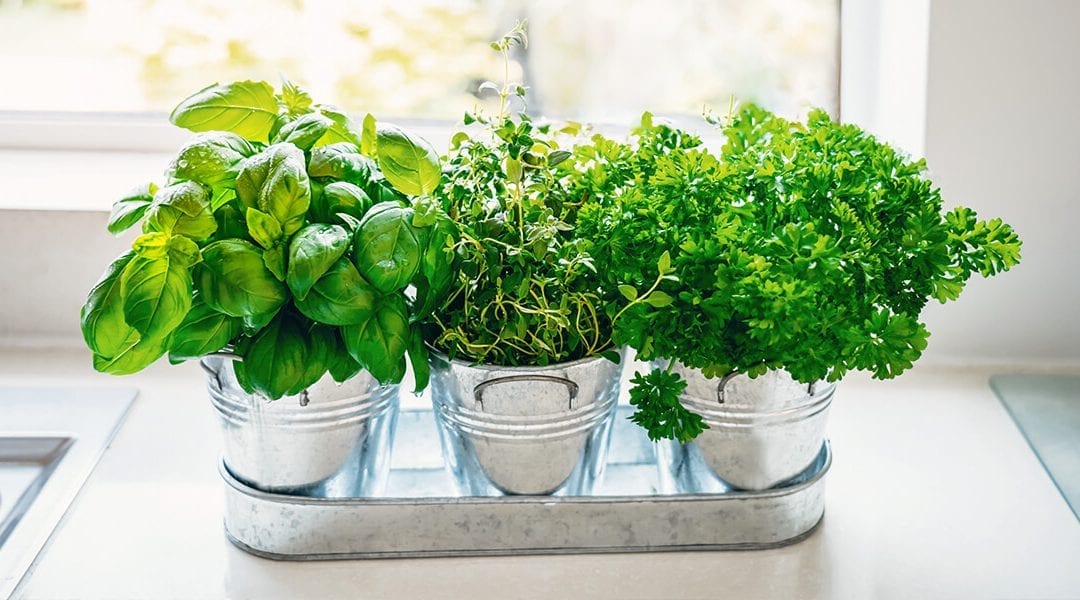Here’s some of the sagest advice you may hear all season: how to grow fresh herbs indoors. They’ve brought our meals to life all season, awakening our taste buds and nourishing us with high-impact nutrients. When winter comes, we don’t have to go back to the spice rack, but can easily cultivate fresh herbs indoors. If you don’t know how, it’s thyme to learn!
Growing herbs inside is one of the best ways to enjoy the flavors and scents of your garden during the winter months.
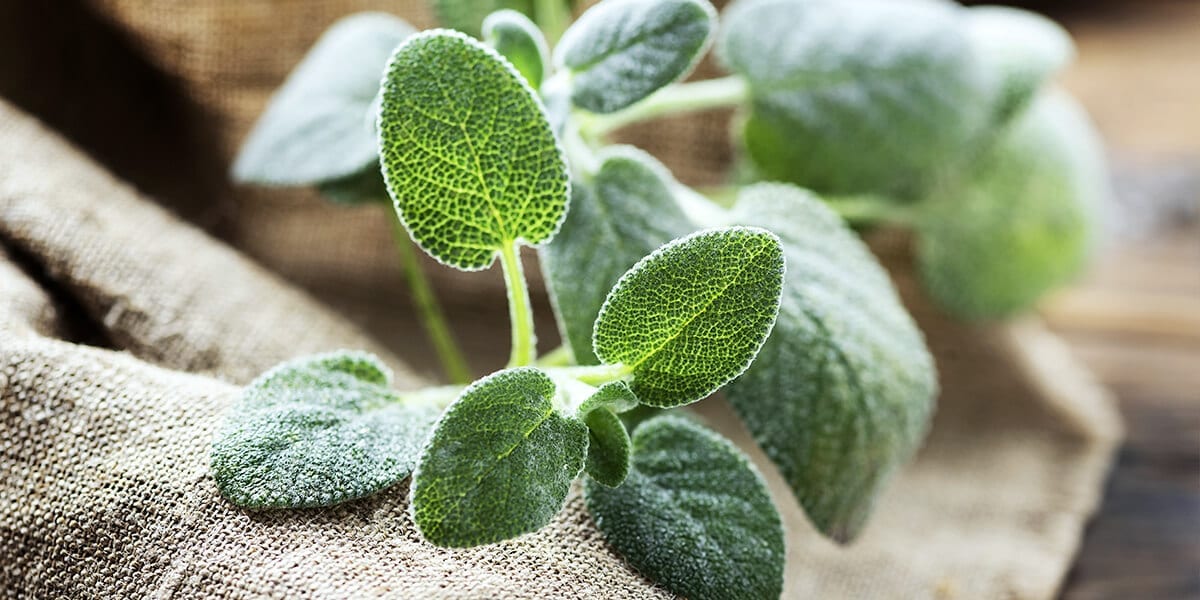
The Easiest Herbs to Grow Indoors
Imagine mouth-watering basil for fresh pesto and pasta; zesty oregano for your homemade pizza; refreshing mint for your favorite drinks; garden chives for your baked potatoes; and sage, rosemary, and thyme ready for Thanksgiving dinner. If you’ve been enjoying them all summer, there is no reason to stop. Or if you forgot to plant them, you don’t need to wait until next spring. Basil, oregano, mint, chives, sage, rosemary, and thyme are the easiest herbs to grow indoors, whether you have them in the garden already or wish to plant them now.
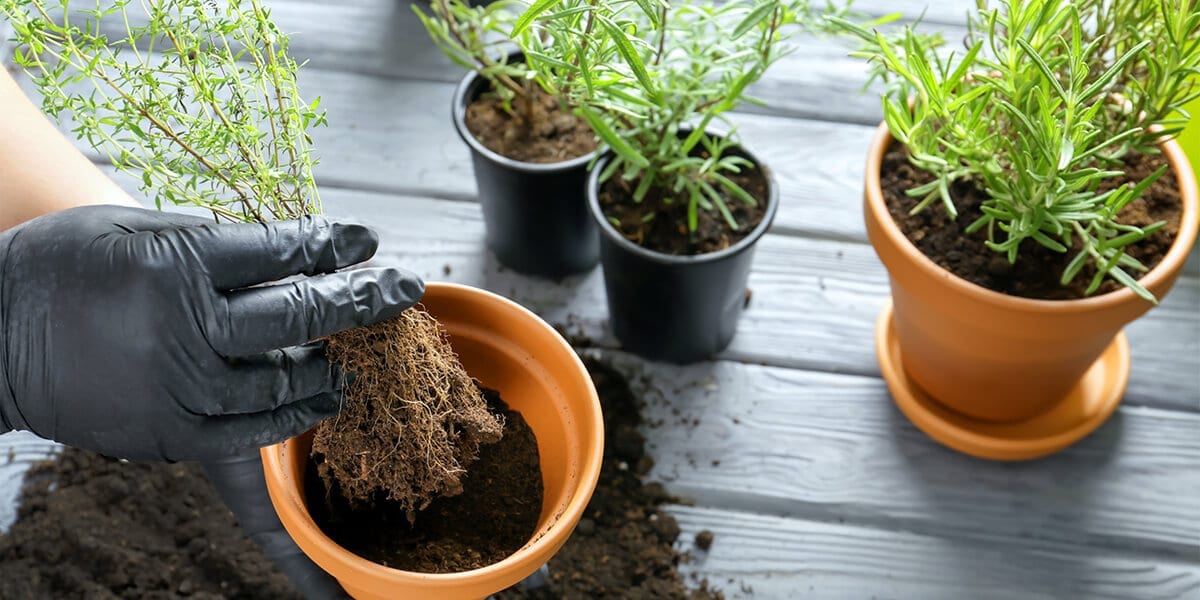
How to Bring Herbs Inside from the Garden
Thyme, mint, oregano, and chives are the best herbs to bring inside from the garden. Their clumped roots are easy to dig up and separate into pots. But before you dig, look closely for pests and any sign of disease. Whitefly can be a common pest on indoor herbs, be sure you are checking the undersides of leaves. Spray the leaves to chase away any insects and flush the soil with water before transplanting. You want the leaves looking clean when you bring them into your home.
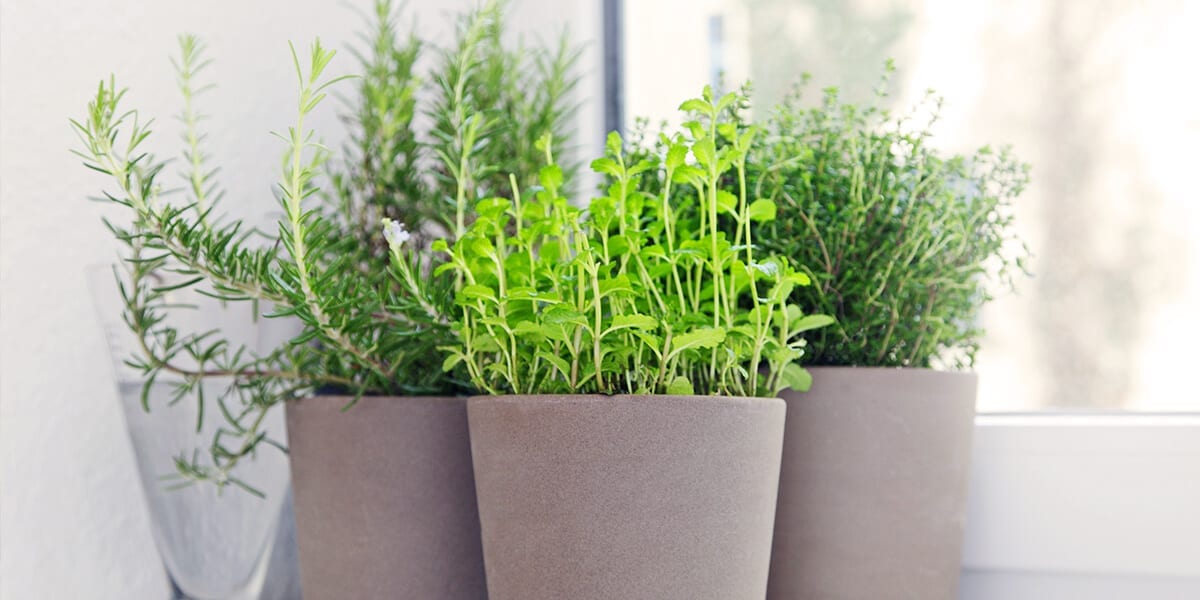
Choosing the Best Pot
Select a pot or container bigger than the root ball, so they have room to expand. Using a small pot means you’ll have to repot it sooner. In a pot that’s too large, the outer soil may stay wet too long, saturating the roots and causing them to rot. Otherwise, herbs thrive in any type of container, as long as it has holes in the bottom for the water to drain out.
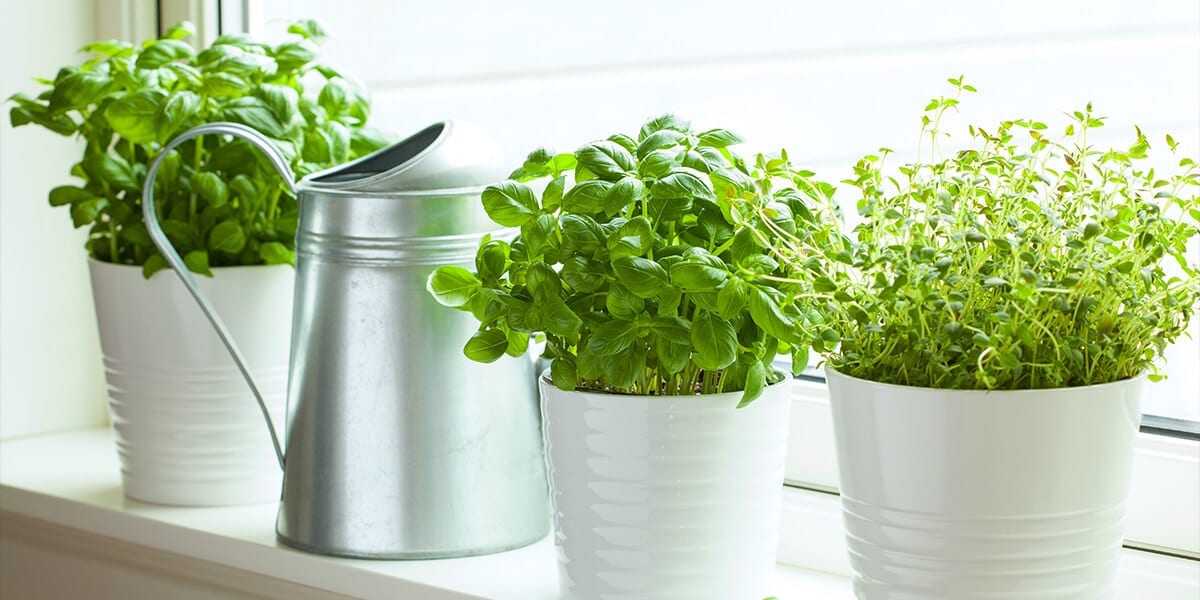
Give Them Light
It’s good to give your herbs time to acclimatize to their new digs. Ease them through their transition by keeping them in indirect light for a couple of weeks. Afterwards, a bright sunny window is a herb’s best friend: southern or western exposure is ideal. If they’re not receiving at least four hours of sun each day, a grow light can come in handy.
Give Them a Drink
It’s best to keep herbs a little drier during the winter. Water them less, and let the top inch of soil dry out between waterings. When you do water, give them a good drink, but without soaking them until they’re soggy, to keep their moisture level just right.
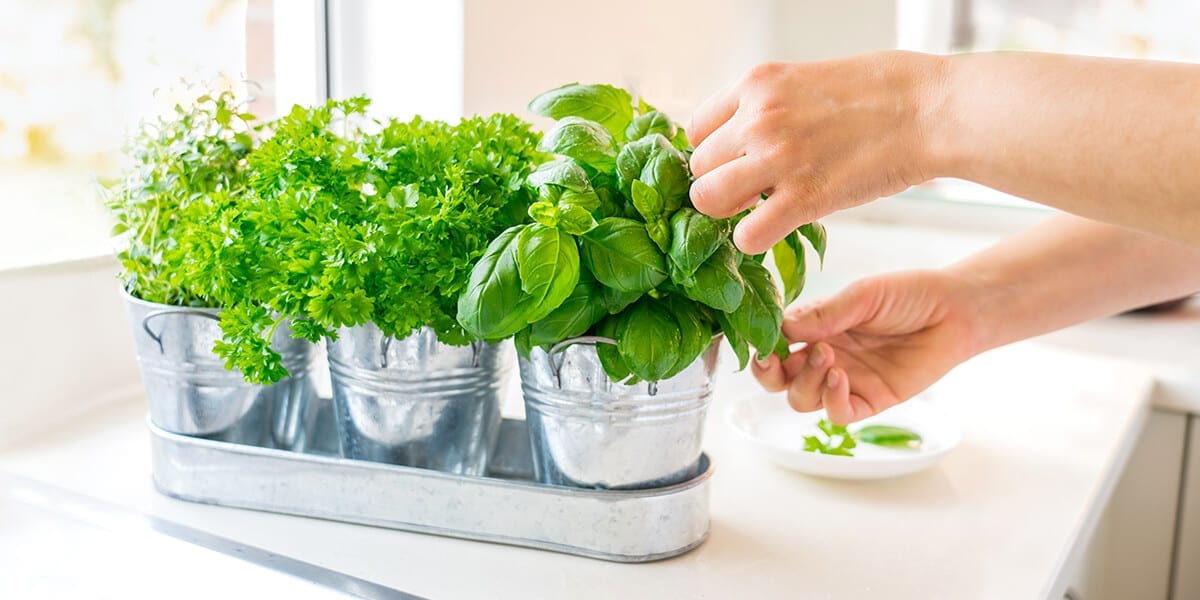
Enjoy a Continual Harvest
To keep tasty leaves available all winter, harvest small amounts at a time. A few snippets here and there will encourage new growth. Harvesting more than a quarter of the plant at once may stress it beyond its ability to recover. But if you’re gentle and polite, your herb will keep producing all year.
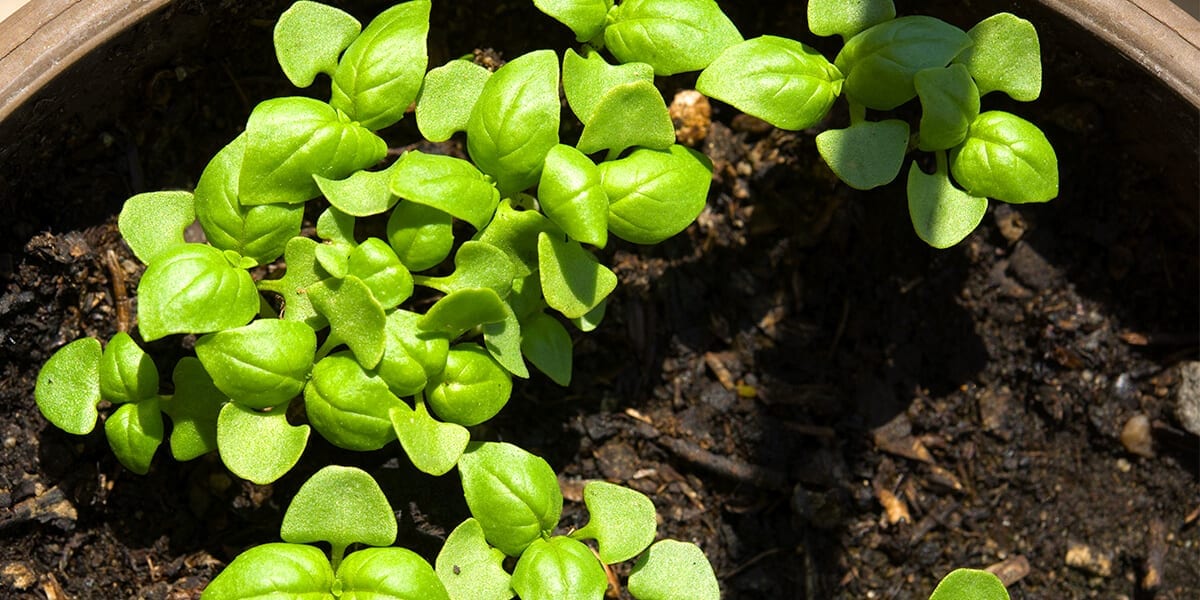
Starting Herbs from Seed and Seedlings
Herbs with woody roots like rosemary and sage can be awkward to dig up. It’s better to start them inside from seeds or seedlings. If you don’t have any garden herbs to transplant, you can just as easily start them all indoors. It may be tough to find seeds this time of year, but it’s possible if you search.
Growing herbs inside is one of the best ways to enjoy the flavors and scents of your garden during the winter months. If you’re looking for any supplies, feel free to contact our garden center to see what we’re offering. And for more expert advice on herbs, tune into our indoor herb workshop on Facebook live!
Platt Hill Nursery is Chicago’s premier garden center and nursery.

